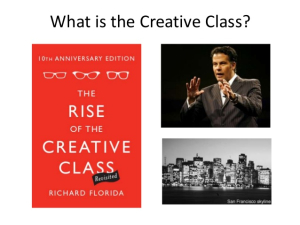 Why will liberals win in 2020, why should they win, and why should businesses applaud?
Why will liberals win in 2020, why should they win, and why should businesses applaud?
It has to do with the gating factor.
The gating factor is whatever is limiting something. In an Internet session, it’s the speed of the slowest connection between server and client. This is true on a micro level as well. Chip companies put memory on-chips because the speed of data movement into processing is the gating factor.
In an economy, the gating factor changes, usually every generation. In the early days of the Republic, the gating factor was labor. That’s why owning slaves made economic sense for Washington, Jefferson, and Madison. Then the gating factor became transportation, and then capital had to be organized. When manufacturing dominated, demand was the gating factor. Failure to grow demand by expanding the money supply caused the Great Depression.
In my generation, resources were the gating factor to growth. It made sense to invest in troops and military hardware who could control vital resources like oil.
In today’s technology economy, the gating factor is brains. Not just people, but smart, motivated, empowered people.
We’re just starting to understand what this means in terms of economic policy.

Successful economies do that. Singapore does that. Israel does that. Even China does that.
That doesn’t mean equality of results, but real opportunity for just about everyone. You don’t know where the next genius is going to come from. It could be the son of a lawyer. It could also be the son of an immigrant. It could be the daughter of a teacher. It could be anybody. Invest in everybody.
Successful tech economies also rely on order, and the acceptance of order on the part of the smart people.
Lower crime rates help. The less we fear each other, the more we can grow as people. It’s also true that the fewer lives we waste, the greater the potential of the whole.

I’ve been covering the tech economy for 40 years. There is a reason that, wherever tech dominates, Democratic Party policies flourish. People intuitively understand this link between investment in people and growth. I call these places “Techlandia.” It’s not just California and Massachusetts. It’s Atlanta, Austin, Raleigh and Minneapolis. It’s Iowa City, and Madison, Wisconsin.
The difference between the politics of Alabama and Mississippi, this coming year, will be in the rise of Birimingham’s medical center and Huntsville’s space center, alongside the lack of such centers in Mississippi.
We can disagree on the margins about proper public policy. It’s good to have the debate. But the broad outlines of a solution to our problems is now very clear.
It ain’t Donald John Trump.

The differences between Joe Biden and Bernie Sanders are marginal. They have to do with their personal histories and the coalitions they’ve gathered around them. But what seems like stark contrast isn’t. Whichever candidate wins will almost certainly take a running mate acceptable to the other candidate’s base. That’s the way nomination fights work. As you read this, the matter may have already been decided.
History will write that 2020 was the triumph of the tech economy. In time there will be a mixed verdict on what that means. There are stupid people in tech. There are stupidities in the way tech is organized, in the products it delivers, on what it demands, and in how it impacts society.
But the world we’re moving into is as distant from the resource era as that era was from the Progressive one. We start with relative prosperity, and relative peace. We’re about to find that these are the forces we can use to save the Earth from the doom that is otherwise certain.










